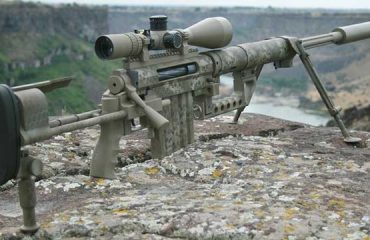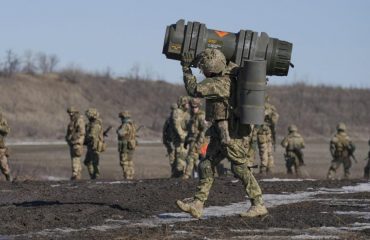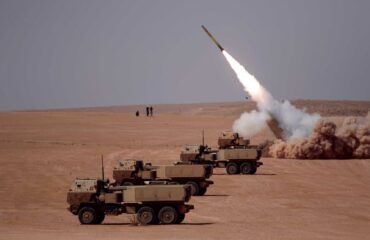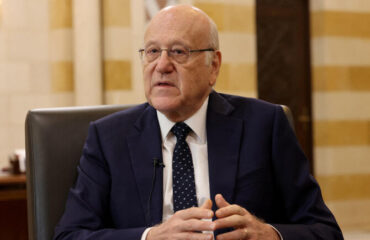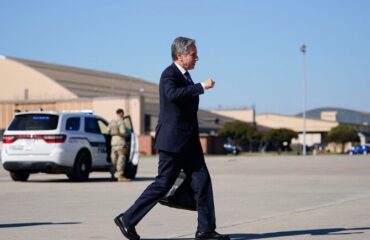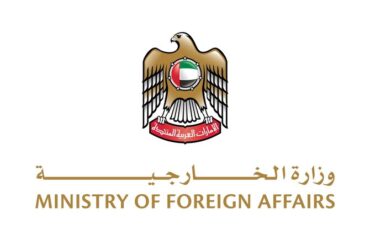Fighting in Gaza’s Rafah as tensions soar on Israel-Lebanon border
More than eight months of war have led to dire humanitarian conditions in the Palestinian territory

GAZA STRIP, Palestinian Territories: Israeli air strikes and clashes between troops and Palestinian militants rocked Gaza on Wednesday, as Israel’s army warned it had readied an “offensive” against the Lebanese Hezbollah movement on the country’s northern front.
Witnesses and the civil defense agency in the Hamas-run Gaza Strip reported Israeli bombardment in western Rafah, where medics said drone strikes and shelling killed at least seven people.
The Israeli military has announced a daily humanitarian “pause” in fighting on a key road in eastern Rafah, but a UN spokesman said days later that “this has yet to translate into more aid reaching people in need.”
More than eight months of war, sparked by Hamas’s unprecedented October 7 attack on Israel, have led to dire humanitarian conditions in the Palestinian territory and repeated UN warnings of famine.
The Rafah border crossing between Gaza and Egypt has been shut since Israeli troops seized its Palestinian side in early May, while nearby Kerem Shalom on the Israeli border “is operating with limited functionality, including because of fighting in the area,” said UN deputy spokesman Farhan Haq.
He told reporters that in recent weeks, there had been “an improvement” in aid reaching northern Gaza “but a drastic deterioration in the south.”
“Basic commodities are available in markets in southern and central Gaza. But… it’s unaffordable for many people.”
The war has sent tensions soaring across the region, with violence involving Iran-backed Hamas allies.
The Israeli military, which has traded near-daily cross-border fire with Lebanon’s Hezbollah since October, said late Tuesday that “operational plans for an offensive in Lebanon were approved and validated.”
On Wednesday the military said its warplanes had struck Hezbollah sites in southern Lebanon overnight, while reporting a drone had infiltrated near the border town of Metula in an attack claimed by Hezbollah and targeting troops.
The Iran-backed group also announced the death of two of its fighters.
Lebanon’s official National News agency reported Israeli strikes on several areas in south Lebanon on Wednesday morning, including on the border village of Khiam, where an AFP photographer saw a large cloud of smoke.
The army’s announcement that its plans for an offensive in Lebanon had been approved, along with a warning from Foreign Minister Israel Katz of Hezbollah’s destruction in a “total war,” came as US envoy Amos Hochstein visited the region to push for de-escalation.
Syrian state media said an Israeli strike on military sites in the country’s south killed an army officer on Wednesday. Israel has not commented on the report.
In Gaza, Islamic Jihad, a Palestinian armed group that has fought alongside Hamas, said its militants were battling troops amid Israeli shelling of western Rafah.
Witnesses reported seeing Israeli military vehicles enter the city’s Saudi neighborhood, followed by nighttime gunbattles.
Parts of central Gaza also saw fighting overnight, with witnesses reporting artillery shelling and heavy gunfire in Gaza City’s Zeitun neighborhood.
The October 7 attack that triggered the war resulted in the deaths of 1,194 people, mostly civilians, according to an AFP tally based on Israeli official figures.
The militants also seized 251 hostages. Of these, 116 remain in Gaza, although the army says 41 are dead.
Israel’s retaliatory offensive has killed at least 37,396 people in Gaza, also mostly civilians, according to the territory’s health ministry.
At least 24 people died over the past day, the ministry said.
A UN report issued Wednesday detailed six “indiscriminate and disproportionate” Israeli strikes that killed at least 218 people in the first two months of the war.
It said the strikes involved “the suspected use” of heavy bombs — a shipment of which the United States had paused in May over concerns Israel might use them in its Rafah assault.
The strikes targeted “densely populated” areas including refugee camps, a school and market, the UN rights office said, making the use of heavy bombs “highly likely to amount to a prohibited indiscriminate attack.”
UN human rights chief Volker Turk said: “The requirement to select means and methods of warfare that avoid, or at the very least minimize to every extent, civilian harm appears to have been consistently violated in Israel’s bombing campaign.”
More than six months since the attacks featured in the report, “there is no clarity as to what happened or steps toward accountability,” Turk said.






